Battle-tested: Why it's time for Ukraine to open up arms exports
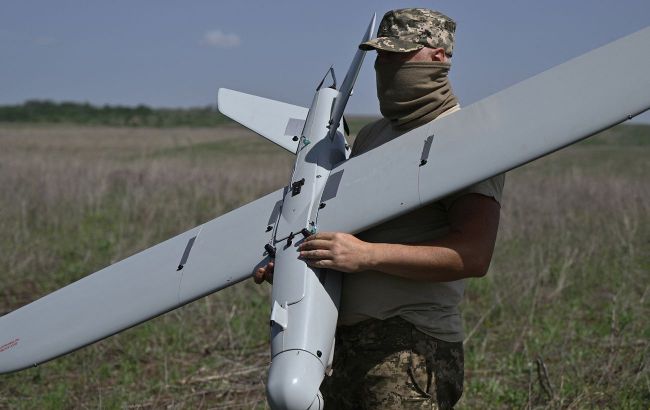 Photo: Foreign companies and governments are most interested in purchasing Ukrainian drones (Getty Images)
Photo: Foreign companies and governments are most interested in purchasing Ukrainian drones (Getty Images)
The state does not purchase nearly all the weapons that Ukraine's defense-industrial complex is capable of producing, which is why manufacturing companies have long been calling for the opening of exports. Why it's important to allow the sale of military products and technologies abroad, how to avoid disruptions in army supplies, and who Ukraine plans to sell weapons to - read below.
Key questions:
- Why should arms exports be allowed?
- Which countries might import Ukrainian military technologies?
- Which domestic developments are of interest to partners?
- How to avoid selling everything abroad and ensure supply for Ukraine's Armed Forces?
- Has Russia stopped its weapons exports?
Green light for technology exports
Representatives of the defense-industrial complex have long discussed the issue of opening arms exports. On the legislative level, it is not prohibited; however, the State Service for Export Control, when reviewing each request from defense-sector companies, typically denies them permission to export their products.
President Volodymyr Zelenskyy promised to unblock the situation, stating at the end of June that agreements would be signed during the summer to start exporting military technologies in the format of launching production lines. Zelenskyy added that the plan includes exporting drone, artillery, and missile production technologies.
As for the list of countries these technologies could go to, the Ukrainian leader said they would be European countries or others that "finance drone production and are beginning to fund missile production in Ukraine." According to the President, Denmark, Norway, Germany, the UK, and Lithuania have already expressed interest in Ukrainian military technologies.
Zelenskyy’s statements were met with support from weapons manufacturers. The idea of exporting technologies was embraced by producers of drones and electronic warfare systems, as well as by manufacturers of armored vehicles and mortars.
In a comment to RBC-Ukraine, Kateryna Mykhalko, Director-General of the Tech Forces of Ukraine association (which unites private UAV and electronic warfare producers), said that such a decision gives a "green light" for cooperation between Ukrainian companies and partners, primarily in EU countries. Mykhalko added that many European nations are interested not just in providing Ukraine with financing to purchase weapons, but are ready to localize relevant production on their own territory.
"Not all countries are ready to just give us money. Some want to localize production at home or seek partnerships, and they're easy to understand," the Director-General of the Tech Forces of Ukraine association said, adding that the most interested countries are those that share a border with Russia.
A detailed legislative framework for the export of military technologies is still in development. Tech Forces of Ukraine said that the most desirable option for businesses would be creating joint ventures with companies within the EU. This format would enable technology exchange, since Ukrainian partners also need access to European technologies and experience in operating under EU legal standards. Such partnerships would significantly accelerate product certification and production launch in European countries.
 Photo: The most likely direction for Ukrainian arms exports will be EU countries (Getty Images)
Photo: The most likely direction for Ukrainian arms exports will be EU countries (Getty Images)
The association believes that the list of countries eligible to purchase Ukrainian technologies should include those that have signed security agreements. "They are our unquestionable partners. It's not just Western countries; for example, Japan is included. The pool of countries is broader, but priority should go to the EU, because we seek EU membership," said the Director-General.
Kateryna Mykhalko also added that several legislative changes are currently being prepared (a package of draft laws has already been registered), aimed at creating conditions for the export of military products and technologies.
Arguments in favor of exports
There are more than enough reasons to open up defense exports. First and foremost, Ukrainian weapons have been tested in real modern warfare, making them highly valuable to buyer nations. As Ihor Fedirko, Executive Director of the Ukrainian Council of Defense Industry, told RBC-Ukraine, our products carry the label battle-proven, which draws special attention at any trade show or business meeting. According to him, more than 100 companies from 25 countries have already expressed interest in Ukrainian products of the defense-industrial complex.
Commenting on Zelenskyy’s statement, Fedirko noted that it's not about direct technology export. "It's more about exporting production capabilities, i.e., transferring assembly technologies without passing on full technical documentation or key know-how. The integrated technology remains under the control of Ukrainian engineers," Fedirko said.
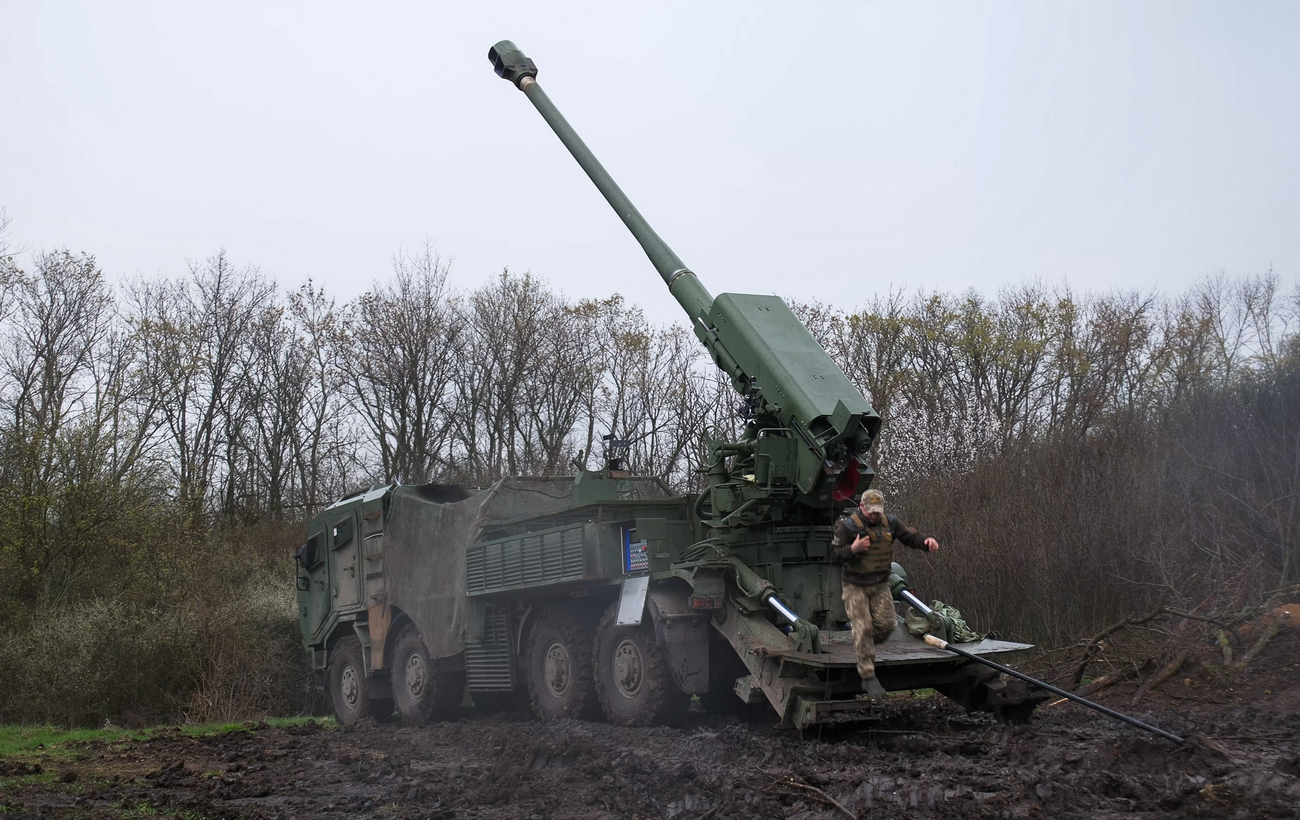 Photo: Ukrainian weapons have a major advantage, having been proven in real combat. Example: the Bohdana self-propelled artillery system (Vitalii Nosach/RBC-Ukraine)
Photo: Ukrainian weapons have a major advantage, having been proven in real combat. Example: the Bohdana self-propelled artillery system (Vitalii Nosach/RBC-Ukraine)
Vladyslav Belbas, CEO of the Ukrainian Armor private company, which manufactures armored vehicles and mortars, said that Ukraine has unique experience using all types of weaponry. "Ukraine is essentially rewriting history, breaking old military doctrines, and writing new rules of modern warfare. Therefore, our army and our defense sector are an invaluable source of information for a world that has spent years developing weapons for parades and storage," Belbas told RBC-Ukraine.
Another major argument in favor of exports is the limitation of the state budget - the government can only afford to buy a portion of what the domestic defense and industrial complex can produce.
According to research by Tech Forces of Ukraine, in 2024, 63% of defense enterprises' production capacity went unused. If Ukrainian enterprises had the opportunity to sell this output abroad, they would receive extra funds for R&D and further production scale-up.
"Arms exports would significantly strengthen the financial stability of Ukrainian manufacturers. Our products sell for much higher prices abroad, so producers would get additional resources to expand production, invest in R&D, broaden their tech base, and launch new lines," said Ihor Fedirko.
The private company Ukrspecsystems, which manufactures drones and auxiliary equipment, said that foreign clients are most interested in Ukrainian reconnaissance and combat drones. These systems are easy to learn and can operate within large military networks. "They provide reconnaissance, target marking, artillery adjustment, combat missions, etc," the press service of the company added.
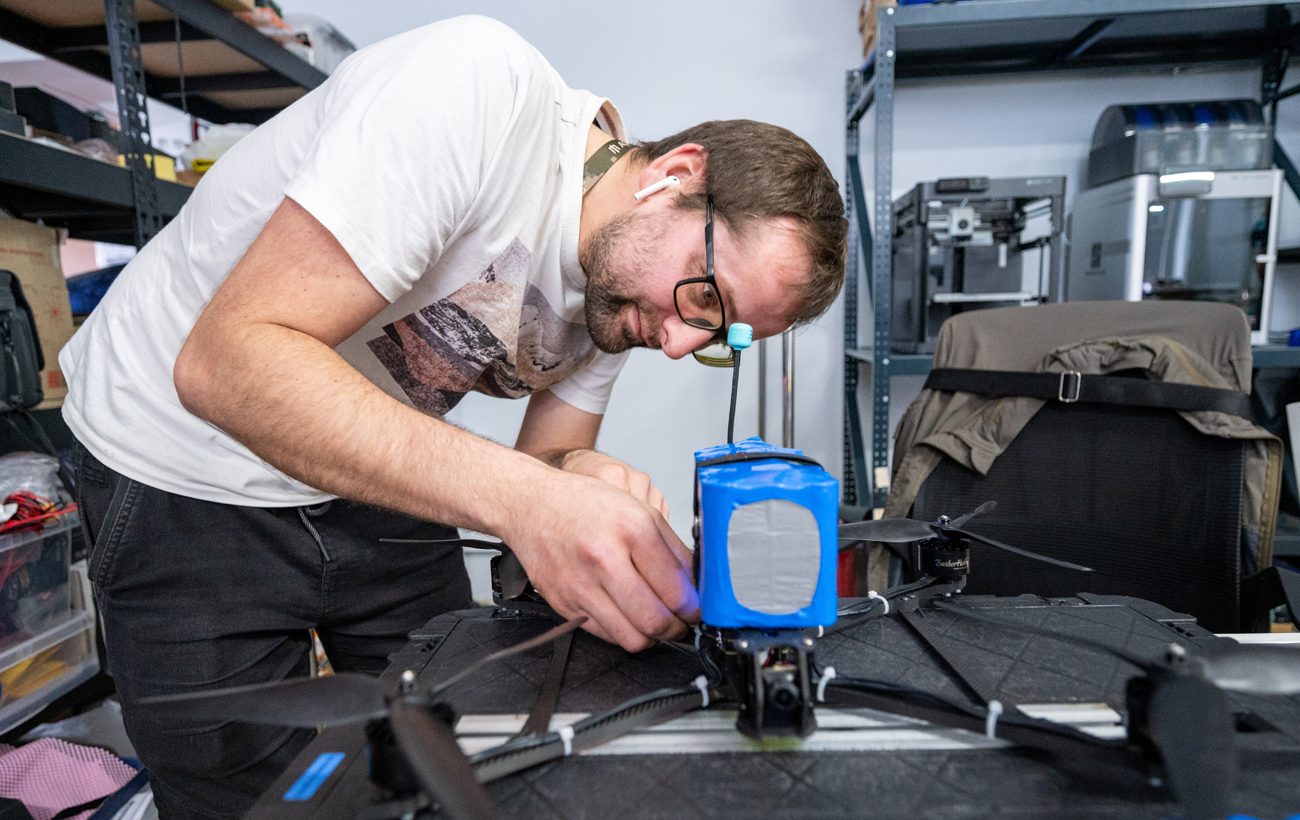 Photo: UAVs are expected to lead Ukraine's defense exports (Getty Images)
Photo: UAVs are expected to lead Ukraine's defense exports (Getty Images)
Another reason to support exports is the ongoing threat to Ukrainian manufacturing from airstrikes. With the increasing number of Russian drones, this concern becomes even more urgent. "In light of ongoing shelling of Ukrainian territory, it's critical to have backup capacities to mitigate security risks," explained Kateryna Mykhalko.
The Director-General of the Tech Forces of Ukraine association added that setting up joint ventures with European defense firms aligns with Ukraine's political course toward EU integration.
Since the beginning of the full-scale invasion, Ukraine has halted weapons sales on the international market. According to the Stockholm International Peace Research Institute (SIPRI), from 2017 to 2021, Ukraine ranked among the top 15 global arms exporters. With the war's onset, the country was forced to become the world's largest importer of military goods. Controlled exports would allow Ukraine to gradually reclaim its position as a manufacturer in the global arms market.
Prioritizing the army's needs
According to Kateryna Mykhalko, opening up exports will positively impact the supply of arms to Ukraine's Defense Forces, as the defense sector will gain more financial resources, scale up production, and lower the unit cost of goods. "For the same budget, a company will be able to sell more products to the state," Mykhalko said.
The State Export Control Service has all the tools to monitor whether manufacturers are fulfilling state contracts, ensuring they don't neglect government orders in favor of exports. "This isn't about selling everything off. It's about a controlled process of technology exchange between Ukraine and the EU," said the Director-General of the Tech Forces of Ukraine association.
Vladyslav Belbas added that under the current law (which does not allow exports), a manufacturer must first check with all domestic buyers (Armed Forces, Security Service, National Guard, etc.), obtain written confirmation that there is no demand, and only then can they apply for export permission.
Still, there are certain warnings and risks. According to Ihor Fedirko, the key challenge is ensuring that Ukrainian technologies don't fall into enemy hands. There must be safeguards to prevent Russia from acquiring defense and industrial complex know-how through third parties. It's also important to recognize that prices in Western markets are higher than in Ministry of Defense contracts, which could incentivize manufacturers to focus more on foreign markets.
"This requires government regulation and a clear definition of state procurement to strike a balance between internal needs and exports," said Ihor Fedirko.
Ukrspecsystems emphasized the need to protect Ukrainian producers' intellectual property rights and to establish a clear, transparent export licensing system.
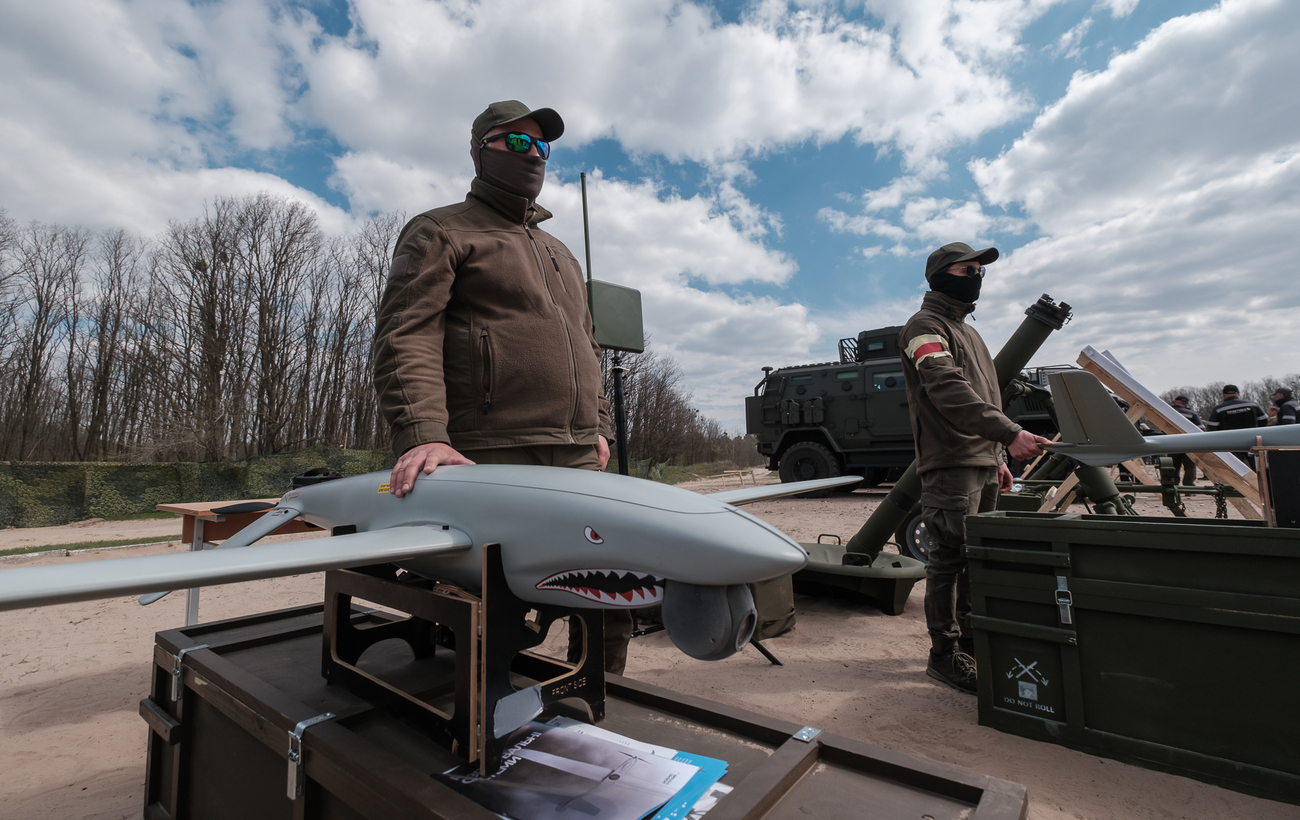 Photo: Protecting Ukrainian intellectual property is critical. Example: Shark UAV by Ukrspecsystems (Vitalii Nosach/RBC-Ukraine)
Photo: Protecting Ukrainian intellectual property is critical. Example: Shark UAV by Ukrspecsystems (Vitalii Nosach/RBC-Ukraine)
When launching export operations, there's a risk that partners may say Ukraine is asking for aid while trying to sell weapons. According to Ihor Fomenko, Head of the Defense Division of the Ukrainian Federation of Employers, in aerospace, rocketry, shipbuilding, and related scientific sectors, this needs to be addressed. He suggests that the Ministry of Foreign Affairs should explain Ukraine's position to partners: only surplus products not purchased by the state or those no longer needed on the front line will be exported.
Exporting finished products
Exporting military technologies is just the first step - Ukraine is also interested in selling high value-added products.
"While we welcome the President's decision to export technologies, we also say: let's move toward controlled exports of finished arms," said Dmytro Oliynyk, President of the Federation of Employers of Ukraine (FEU), in a comment to RBC-Ukraine. Oliynyk added that selling finished products would increase the defense and industrial complex utilization.
Three models of export were discussed: individual approval of each contract by the State Export Control Service (current model), permission to export up to 50% of the volume contracted for the Defense Forces, and an export duty of 20% payable to the budget.
Ukrspecsystems supports the idea of allowing up to 50% of Ukraine's Defense Forces contract volumes to be sold abroad. "It's a healthy compromise. It ensures domestic needs remain a priority, creates a clear formula for producers, and allows foreign contracts," the company told RBC-Ukraine.
In contrast, a new export tax increases the fiscal burden and risks pushing activity into the shadows, while the current model of approving every contract "involves many variables and turns each case into a gamble."
Relocating defense companies abroad
As the export issue remains unresolved, many companies have independently moved operations to Europe. According to an August 2024 survey by Tech Forces of Ukraine, 85% of the defense and industrial complex manufacturers had either considered or already executed relocation - setting up offices or production facilities abroad.
For instance, Ukrspecsystems opened an office in Poland back in 2022 and launched production of its PD-2 multi-role UAV there. This reduced attack risks and made the company more accessible for cooperation with European partners. Though certifying military goods in the EU is complex, there are partners in the European market ready to help with permits. Opening a business in Europe offers broad opportunities for Ukrainian manufacturers.
"This includes integrating our components into European systems, contract manufacturing, and joint development," Ukrspecsystems told RBC-Ukraine.
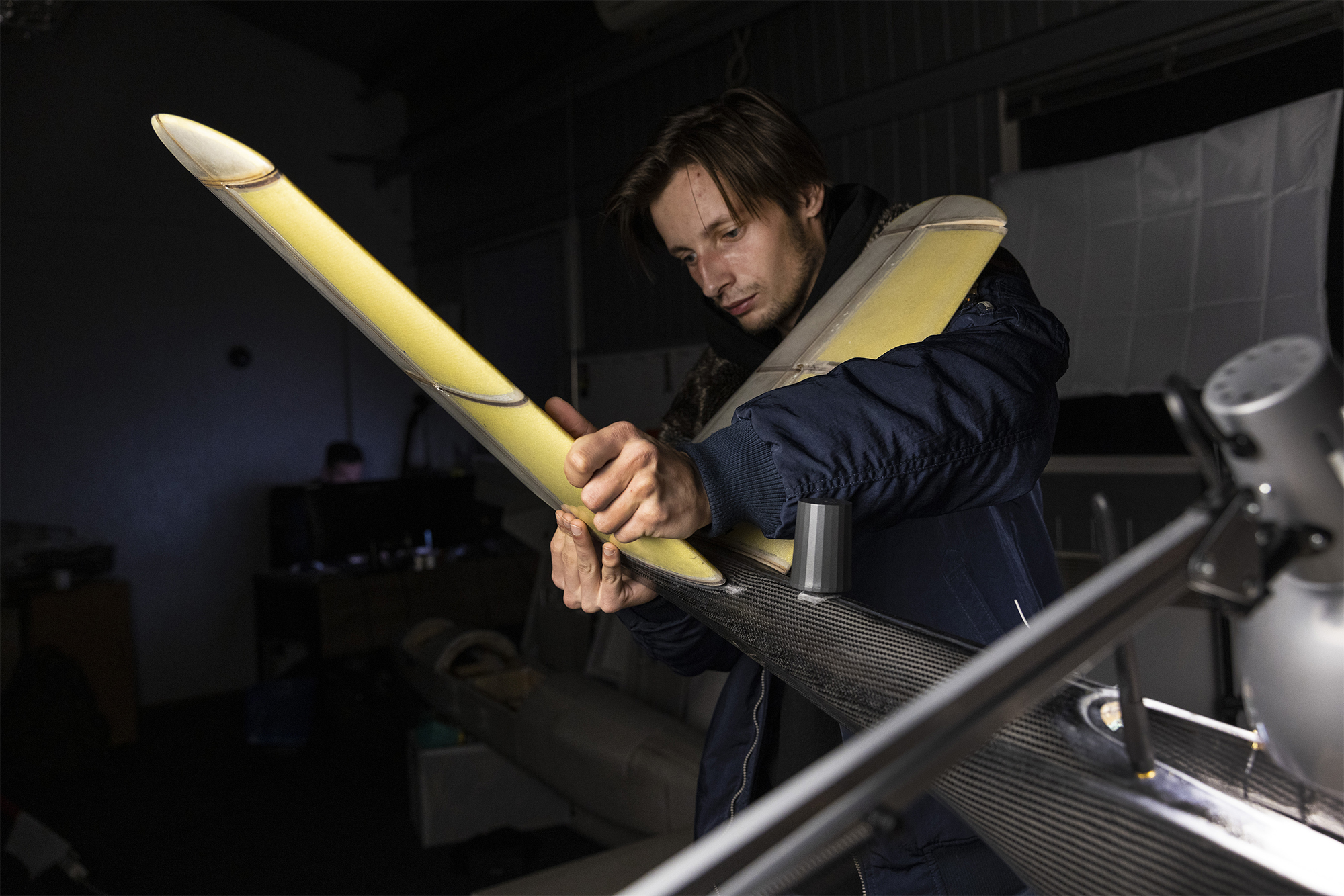 Photo: With exports blocked, some companies have relocated production abroad (Getty Images)
Photo: With exports blocked, some companies have relocated production abroad (Getty Images)
In Ihor Fomenko's view, it's important to distinguish between short- and long-term relocations of Ukrainian defense firms. "Short-term relocation allows for raising extra funds to produce arms, including for the Defense Forces. Overall, it's not a bad scenario," he told RBC-Ukraine.
If relocation becomes long-term, Ukraine loses control over companies, technologies, and personnel. According to Fomenko, allowing exports would reduce the likelihood of this happening.
Russia's arms exports
Since its full-scale invasion of Ukraine, Russia has not stopped exporting weapons, though it has lost significant ground in the global market. According to SIPRI, in 2020–2024, Russia ranked third globally in arms exports with a 7.8% market share (the US ranks first, France second). Compared to 2015–2019, Russia's share has dropped 2.7 times. Nevertheless, Russian arms are still purchased by countries in Asia, Oceania, Africa, the Middle East, as well as Belarus, Armenia, and Serbia.
From the official Telegram channel of Russia's state company Rosoboronexport, it's clear that its representatives attend exhibitions in countries like Peru, Vietnam, Iraq, and the UAE. In 2024, Russia's arms export contract portfolio was valued at $55 billion. "Even if they exaggerated, that's a big number. Publicly, they claim exports continue and that international cooperation is ongoing," said Kateryna Mykhalko.
Ukraine's weapons exports should be aimed at the Western world. Russia's partners will be on a blacklist. However, according to Mykhalko, there are countries, particularly in the Middle East, where Ukrainian and Russian products may compete. SIPRI data show that some of the world's largest arms importers are in this region.
For now, Ukraine's challenge is to develop a transparent, understandable export model for military technologies. This model must protect Ukrainian manufacturers' intellectual property rights and help expand their business opportunities. Diplomats will need to explain to external stakeholders why Ukraine still needs aid and weapons, even as it opens defense exports.

